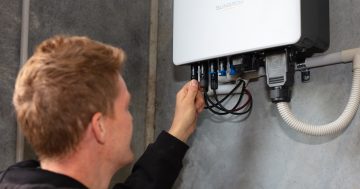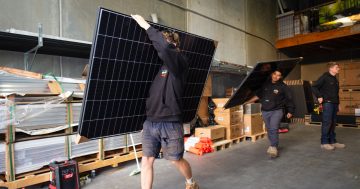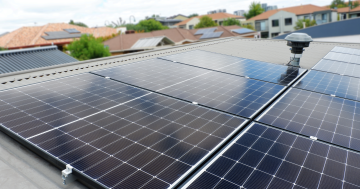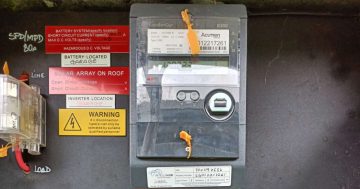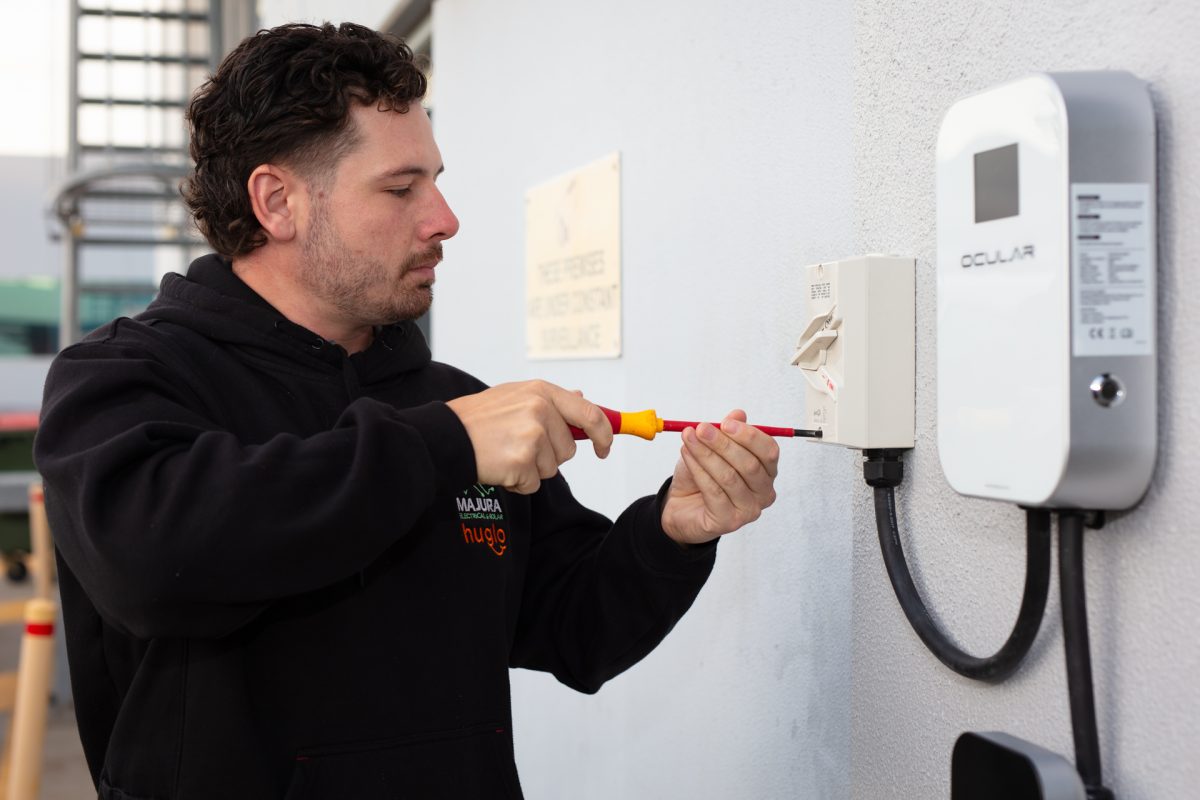
When setting up your home battery system, you may want to prioritise which appliances are most important. Photo: Thomas Lucraft.
As Canberra charges towards electrification, placing more demand on the grid, you might be looking to join a growing number of Australians installing home batteries to achieve energy independence.
If your key motivation is to stay ahead of a potential increase in blackouts, there are a few things you should be aware of before diving in, according to one expert.
Huglo director Justin Riggs says while most people know that batteries come with differing capabilities, many people don’t realise it’s rare for an installer to default to full home backup power unless specifically asked.
“A lot of people who are sold a battery are sold a pipe dream. They have a picture of what blackout protection looks like: the power on their block goes out and aside from a potential flicker of the lights, their entire home is completely unaffected. They assume the battery they’re installing is capable of that,” he says.
“But battery capabilities are vastly different and can range from a single outlet to complete full home backup. It depends on the rated output power of the inverter, which is measured in kilowatts.”
It’s certainly possible to achieve a reality where blackouts go unnoticed. A Latham home where Huglo recently installed a 9.6 kW battery discovered they had had a four-hour power outage they were completely unaffected by.
But according to Justin, many people when they think about it, may not have the storage capacity or even the desire for full home backup. In this case, he recommends taking an inventory of outlets and appliances and prioritising before booking an installation.
“Consider which appliances matter most in a blackout – things like your fridge, for example, or perhaps your work computer and Wi-Fi router – and ensure you know which outlets power those appliances; ideally without the inconvenience of extension cords,” he says.
“Make sure you’re ready with a list of questions for your supplier to ensure what you’re signing up for meets your expectations. If your system is properly designed, it can power whatever you need for an extended period, including your whole home.”
When selecting the battery and system that’s right for you, it’s worth doing a bit of research. Most modern batteries use lithium-ion technology, but the latest sub-type is lithium iron phosphate.
Justin says in performance, safety and economics, this battery is widely regarded as the best option and the battery most commonly installed today.
“You hear a lot of horror stories about runaway fires that burn for days. The lithium iron phosphate technology have higher thermal stability, making them resistant to thermal runaway even under extreme conditions, so is intrinsically lower risk,” he says.
“It also has a lifespan about five times longer than traditional lithium-ion batteries.”
Justin also recommends taking into account measures to future-proof your purchase.
“You want a battery that’s easily extendable so it can grow with your energy usage. You also want one with a good warranty, one that’ll outlast the payback period. Make sure you get that information from your supplier,” he says.
There is some quick and dirty math to give you a rough idea of your inverter power needs during a blackout. You can measure the inverter’s power output in kilowatts, then divide by 230 to find the number of amps, with the amps you can get a rough idea on how many circuits you can power by comparing it with your circuit breakers.
Or, you can ask your trusted supplier – and you definitely should.
“Batteries are not cheap, but they’re a great investment for a number of reasons. Just ensure you find an installer you can count on to advise you. That can really take that pressure off,” Justin says.
For more information, contact Huglo.














